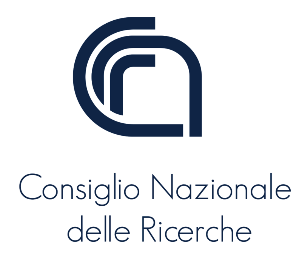
L’ENEA è l’Agenzia nazionale per le nuove tecnologie, l’energia e lo sviluppo economico sostenibile, ente di diritto pubblico finalizzato alla ricerca, all’innovazione tecnologica e alla prestazione di servizi avanzati alle imprese, alla pubblica amministrazione e ai cittadini nei settori dell’energia, dell’ambiente e dello sviluppo economico sostenibile (art. 4 Legge 28 dicembre 2015, n. 221).” ENEA dispone di personale altamente qualificato, laboratori avanzati, impianti sperimentali e strumentazioni di eccellenza per la realizzazione di progetti, studi, prove, valutazioni, analisi e servizi di formazione con particolare riferimento all’innovazione di prodotto e di processo e alla valorizzazione dei risultati per contribuire allo sviluppo e alla competitività del Sistema Paese. Sin dalla nascita negli anni ’60, i suoi punti di forza sono la ricerca applicata, il trasferimento tecnologico e l’assistenza tecnico-scientifica a imprese, associazioni, territori, amministrazioni centrali e locali: anche per questo, diversamente da altri enti di ricerca, il riferimento istituzionale è il Ministero dello Sviluppo economico. I settori di specializzazione sono le tecnologie energetiche (fonti rinnovabili, accumuli, reti intelligenti) dove l’Agenzia è anche il coordinatore del Cluster Tecnologico Nazionale Energia, la fusione nucleare e la sicurezza (dove l’Agenzia è coordinatore nazionale per la ricerca), l’efficienza energetica (con l’Agenzia Nazionale per l’efficienza), le tecnologie per il patrimonio culturale, la protezione sismica, la sicurezza alimentare, l’inquinamento, le scienze della vita, le materie prime strategiche, il cambiamento climatico. Tra le questioni emergenti, l’ENEA sostiene il sistema produttivo e le autorità pubbliche (Ministero dell’ambiente e Ministero dello sviluppo economico in particolare) nella transizione verso l’economia circolare e l’efficienza delle risorse.

Ricerca sul Sistema Energetico – RSE SpA è una società per azioni del Gruppo GSE SpA, che sviluppa attività di ricerca nel settore elettro-energetico, con particolare riferimento ai progetti strategici nazionali, di interesse pubblico generale, finanziati con il Fondo per la Ricerca di Sistema Elettrico.
RSE implementa attività di ricerca in collaborazione con il sistema della pubblica amministrazione centrale e locale, con il sistema produttivo nella sua più ampia articolazione, con le associazioni e i raggruppamenti delle piccole e medie imprese e le associazioni dei consumatori.
RSE promuove e favorisce lo sviluppo delle professionalità di domani attraverso tutte le occasioni di supporto allo svolgimento di attività di formazione e divulgazione legate ai temi di ricerca presidiati.
L’attività di ricerca e sviluppo riguarda l’intera filiera elettro-energetica in un’ottica essenzialmente sperimentale e applicativa, ed è attuata attraverso iniziative di ricerca interne e in risposta a sollecitazioni esterne.
RSE dispone di un capitale umano che costituisce un patrimonio unico di competenze e di esperienze, la cui difesa e il cui sostegno sono condizioni necessarie per lo sviluppo di politiche di innovazione in un settore di rilevante interesse per il Sistema Paese, come quello energetico.

Il Consiglio Nazionale delle Ricerche (CNR) è un Ente pubblico di ricerca nazionale con competenze multidisciplinari, vigilato dal Ministero dell’Università e della Ricerca (MUR). Fondato nel 1923, ha il compito di realizzare progetti di ricerca scientifica nei principali settori della conoscenza e di applicarne i risultati per lo sviluppo del Paese, promuovendo l’innovazione, l’internazionalizzazione del “sistema ricerca” e favorendo la competitività del sistema industriale.
Ogni giorno, il CNR affronta le sfide del nostro tempo in molteplici settori: salute dell’uomo e del pianeta, ambiente ed energia, alimentazione e agricoltura sostenibile, trasporti e sistemi di produzione, ICT, nuovi materiali, sensori e aerospazio. Ma anche scienze umane e tutela del patrimonio culturale, scienze sociali, bioetica, scienze e tecnologie quantistiche, intelligenza artificiale, tecnologie abilitanti.
Le attività vengono svolte attraverso un patrimonio di risorse umane di circa 8.500 dipendenti operanti su tutto il territorio nazionale, di cui oltre 7.000 impegnati in ricerca e attività di supporto alla ricerca. La rete scientifica è costituita da 88 Istituti di ricerca e da sette Dipartimenti per aree macro-tematiche. Un contributo importante arriva dalle collaborazioni, anche internazionali, con i ricercatori delle Università e delle imprese.
Il CNR, inoltre, è il maggior Ente non universitario coinvolto nei dottorati di ricerca degli atenei italiani, con l’obiettivo di contribuire all’alta formazione dei giovani mediante percorsi caratterizzati da altissimo profilo scientifico, innovazione e qualità della ricerca.

L’Istituto Italiano di Tecnologia (IIT) è una fondazione disciplinata dagli articoli 14 e ss. del Codice civile, istituita con D.L. 269/03, convertito con Legge n. 326/2003 (art. 4 dello Statuto), finanziata dallo Stato per lo svolgimento di attività di ricerca scientifica di interesse generale, per fini di sviluppo tecnologico.
L’IIT è vigilato dal Ministero dell’economia e delle finanze e dal Ministero dell’istruzione, università e ricerca e sottoposto al controllo della Corte dei Conti ai sensi della Legge 259/58 (“Partecipazione della Corte dei conti al controllo sulla gestione finanziaria degli enti a cui lo Stato contribuisce in via ordinaria” – art. 12).
L’IIT ha l’obiettivo di promuovere l’eccellenza nella ricerca di base e in quella applicata e di favorire lo sviluppo del sistema economico nazionale.


